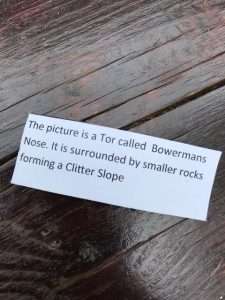To be a head teacher must be the most thankless of tasks, when students do well, it is to their credit, when they do badly, the school is to blame. There seems to be a lot of blame being attributed at the moment, parents who, through the government restrictions, have lost control of almost every area of their life, seem to find that school is an area where they can vent their frustrations. The most insignificant matters can become issues of principle.
Walking from a school gate with the head teacher, I commented that it must be difficult to be the recipient of a constant barrage of complaints. He believed a good sense of humour got him through each day, helped him keep things in perspective.
Thinking about a loss of perspective, a magnification of a matter to an absurd extent, I recalled a story I first heard in the 1900s:
“A lady took my seat in church a while back. It’s not that important really. She is a very nice lady, kind and considerate. A good friend, in fact. There were several other seats available. I can sit anywhere. The people in our congregation are as friendly and caring as you will find anywhere in the world. A person should be comfortable sitting anywhere. It’s no big deal.
My seat is in the seventh row back from the front of the church. I’m sure she didn’t intend to take my seat. She just wouldn’t do that. Nor would anybody else in our fine church. It doesn’t make that much difference. My seat is on the end of the pew, on the north side by the windows. On your left as you come into the sanctuary. I can rest my left arm on the end of the pew. It’s a good seat. But I would never raise a fuss about a seat. She probably didn’t intend anything personal by taking my seat. I would never hold a grudge ….
Actually, it was about three months ago when she took my seat. I really don’t know why she took it. I’ve never done anything to her. I’ve never taken her seat. I suppose I’ll have to come an hour early now to get my seat. Either that or sit on the south side.
She really took it because it’s one of the best seats in the house. That’s why she took it. She had no business taking my seat. And I’m not going to go to church two hours early to get what was rightfully mine from the beginning.
This is the way great social injustices begin: abusive people taking other people’s seats in church. This is the way the seeds of revolution are sown. A person can only stand so much. Where is it going to end? If somebody doesn’t stand up and be counted, nobody’s seat will be safe. People will just sit anywhere they please. And the next thing they’ll do is take my parking place, too. World order will be in shambles . . .”
Zean Carney, Editor, The Banner-Press
David City, Nebraska, 9 May 1991
It seems a tale well-fitted to the absurdity of the current times.


